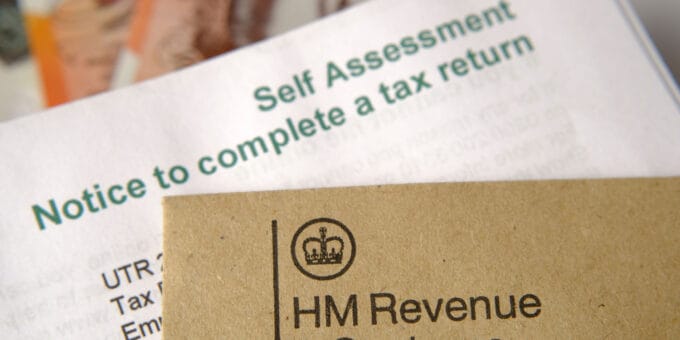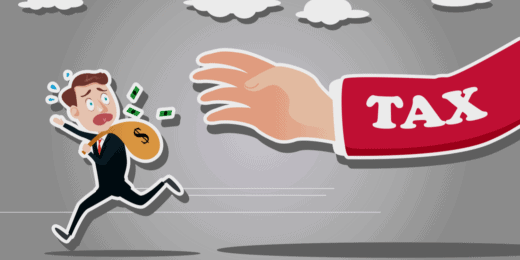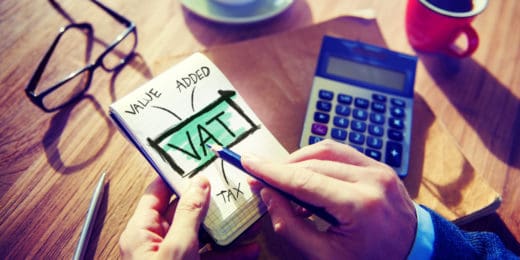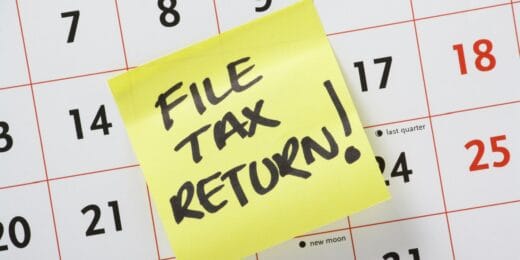Upon the registration of a limited company, it’s not immediately clear whether or not the people within the company (directors and shareholders) need to register for Self Assessment and go on to file a personal tax return. In this article, we will clear up any confusion on the subject. Let’s get started.
Key Takeaways
- Register for Self Assessment if you receive taxable income not deducted at source, like director’s loans or dividends.
- Directors can avoid Self Assessment if their salary is taxed through PAYE and no additional income is received.
- Use HMRC’s free check tool to determine if you need to register for Self Assessment based on your financial situation.
Self Assessment tax returns – the basics
For most employees in the UK, the Income Tax that they need to pay is automatically taken from their wages through Pay As You Earn (PAYE), arranged by their employers. This is often referred to as having tax deducted at source.
Whilst PAYE is sufficient for the majority of people, it is not appropriate for individuals who have more complex financial arrangements – such as business owners. This is where Self Assessment and tax returns come in.
A Self Assessment tax return is the way in which HM Revenue and Customs (HMRC) collects Income Tax from certain people, including:
- Sole traders who earn more than £1,000 in a financial year
- Partners in business partnership arrangements
- Company directors who receive untaxed income
- Company shareholders
- Individuals who need to pay Capital Gains Tax from the sale or ‘disposal of’ something that increased in value
- Individuals who need to pay the High Income Child Benefit Charge
As someone who has set up a limited company, knowing whether or not you need to register for Self Assessment and file a tax return (as a director, shareholder, or both) comes down to one key question.
Will you receive a taxable income that isn’t taxed at source?
Directors and shareholders are generally required to register for Self Assessment if they have taken money out of the company (or received any other form of taxable income) and not paid tax on it, for example, through PAYE.
Let’s take a look at the main methods of payment, and whether or not registration is required.
Director’s salary
If you’re being paid a director’s salary but don’t receive taxable income from any other sources (e.g. dividends, expenses, director’s loans), you don’t need to register for Self Assessment.
The company is your employer and must register for PAYE if your salary is more than £5,000 per year. Any Income Tax and National Insurance you owe on your salary will be collected through PAYE.
Shareholder dividends
If you’re a shareholder and the company rewards you with dividends, there is no requirement to register for Self Assessment if the payment is £500 or less (the annual dividend allowance).
However, if your dividend income is more than £10,000, you must report and pay tax on these earnings through Self Assessment, so registration is necessary.
If your dividend income is £10,000 or less, you must report through Self Assessment if you need to send a tax return for any other reason. Otherwise, you can:
- ask HMRC to update your tax code - any tax due will be taken from your wages or pension
- contact HMRC’s helpline
In most instances, individuals who are both directors and shareholders need to register for Self Assessment.
Director’s loan
When a director removes money from the company that isn’t a salary, dividend payment, or expense reimbursement, it’s typically viewed as a director loan.
If the director fails to repay the loan within 9 months of the end of the company’s financial year, tax must be paid on the loan. This is done through the Self Assessment tax return, so registration is necessary in this instance.
Dormant companies and Self Assessment
If you have set up your limited company but envisage it being dormant for the foreseeable future – perhaps you formed the company simply to reserve the name or have an idea for a side hustle but aren’t ready to start trading – there is no requirement for you to register for Self Assessment (yet).
This is because you will not be taking any money from the company, and if you are employed, any Income Tax that you do need to pay will be arranged through PAYE.
Check if you need to register for Self Assessment
If you’re not sure whether or not you need to register for Self Assessment and file a tax return, you can use HMRC’s free check tool. All you need to do is answer a few questions about yourself and your business. The tool will then notify you if you do or don’t need to register for Self Assessment.
Self Assessment tax return deadlines
The last tax year was 2024/25, which ran from 6 April 2024 to 5 April 2025. This is the period that Self Assessment customers are currently reporting.
If you need to register for Self Assessment and file a tax return for income received in the 2024/25 tax year, below are the key dates that you need to be aware of:
- Registration for Self Assessment deadline: 5 October 2025
- Submitting a paper tax return deadline: 31 October 2025
- Submitting an online tax return deadline: 31 January 2026
- Paying the tax you owe deadline: 31 January 2026
Failure to meet a deadline can result in a penalty being imposed. These dates will be updated as and when we move into a new financial year.
If you need to register for Self Assessment
Once it’s clear that you, as a director or shareholder in the company, will be receiving a taxable income that won’t be taxed at source, we recommend registering for Self Assessment as soon as possible.
You can find out how to register for Self Assessment by visiting HMRC’s dedicated ‘File your Self Assessment tax return online’ page.
Thanks for reading
We hope you now understand whether or not you need to register for Self Assessment. Please leave a comment if you have any questions and we’ll get back to you as soon as possible.
Please note that the information provided in this article is for general informational purposes only and does not constitute legal, tax, or professional advice. While our aim is that the content is accurate and up to date, it should not be relied upon as a substitute for tailored advice from qualified professionals. We strongly recommend that you seek independent legal and tax advice specific to your circumstances before acting on any information contained in this article. We accept no responsibility or liability for any loss or damage that may result from your reliance on the information provided in this article. Use of the information contained in this article is entirely at your own risk.












Join The Discussion